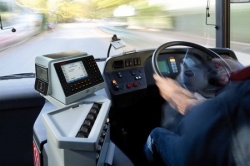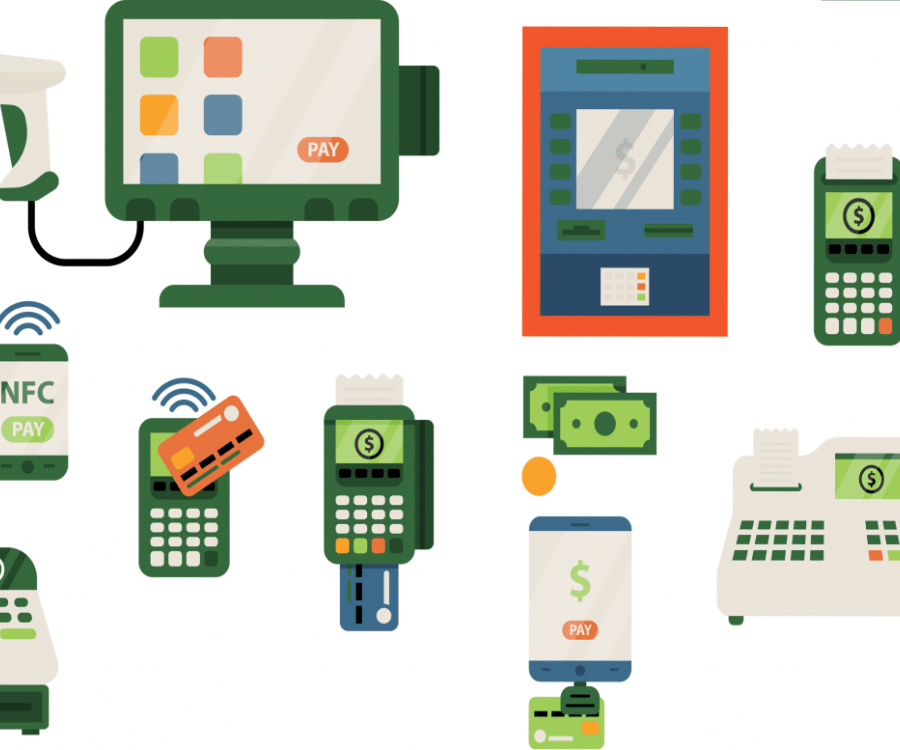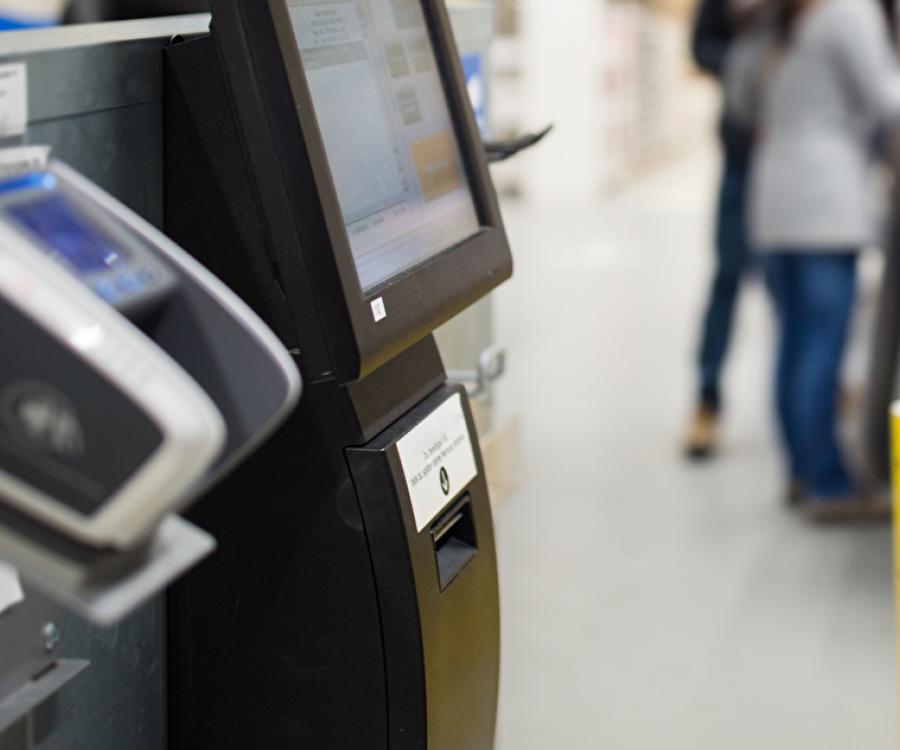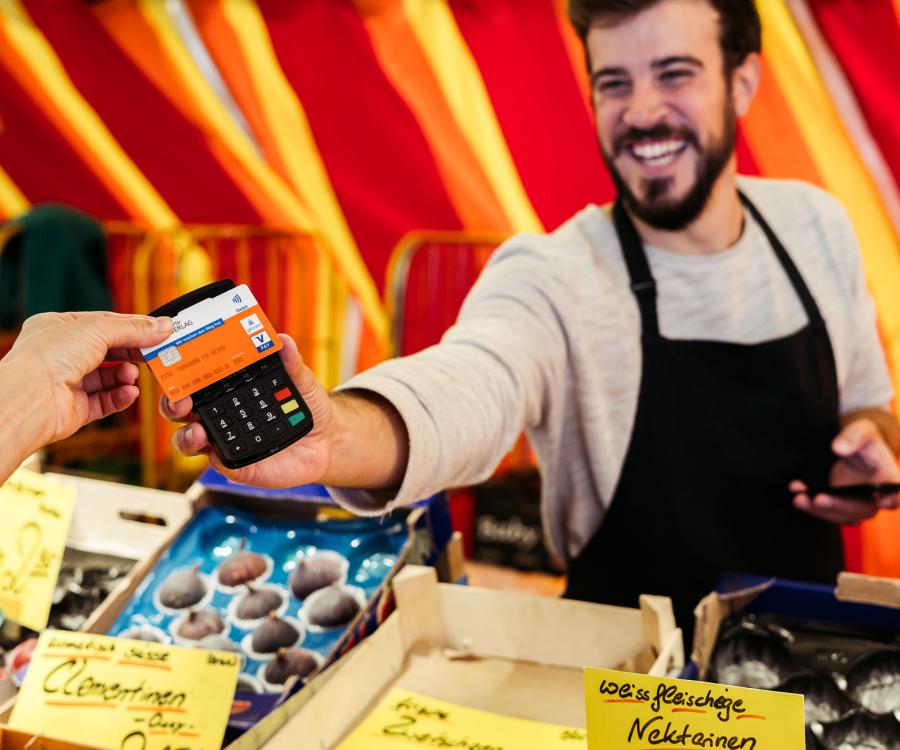Long waiting times when buying tickets on buses and trains are now a thing of the past - at least for customers of Hoeft & Wessel: for the first time ever, the IT specialist will provide them with a new Almex e-Ticketing system for convenient, contactless payment by credit card without prior registration. "This super-fast ticketing system will practically revolutionise the public transport system. All passengers will soon need is a credit card with NFC functionality to be able to board the means of transport of their choice immediately. What this means in practice is boarding, holding the card in front of the reading device and starting the journey. After holding the card in front of a reader at the end of the journey the best fares will be calculated and charged. There really is no simpler solution", explains Thomas Wolf, member of the Board of Management of the Hoeft & Wessel Group, the benefits of the new system. Hoeft & Wessel provides this exclusive comfort for drivers and passengers with the aid of high-end on-board computers with integrated ticket printers of the type almex.optima in the business line version (bl) and electronic validator of the almex.smartfare series. With the new NFC ticketing system it was possible to minimise the transaction time required for identification of the credit card or the e-Ticket, which now amounts to less than 500 milliseconds.
A prerequisite for this is a credit card with EMV contactless functionality, an RFID technology for what is known as Near Field Communication (NFC). This form of payment has been offered by large credit card organisations since recently.
The e-Ticketing solution used in the United Kingdom is based on the latest and, hence, fastest version ITSO 2.1.4, which reduces boarding times substantially.
In addition, the new system is being offered in other European countries also with the e-Ticketing standards Calypso and VDV-KA.
On-board computers and validators use a scanning device to identify both NFC credit cards with the functionalities MasterCard PayPassTM and Visa payWaveTM as well as e-Tickets compliant with the British ITSO standard. This makes it easier for passengers to use the system, prevents errors in operation and takes up less space in the driver´s working area. Offline operation ensures very fast transaction times since no online queries are necessary via the background system. Each terminal receives updated blocking lists in certain cycles at close intervals to ensure a high level of security in spite of offline operation. This solution facilitates a very simple and fast tap on/tap off or check-in/check-out process.
In the past, contactless credit cards provided for payment of a service at a predefined price. In contrast, as passengers´ boarding and exiting statistics are recorded, this means that the total fare is only determined when changing trains or buses or at the end of the journey. Moreover, passengers used to be required to register with the transport authorities and buy a special identification medium to be able to use these processes. The innovation developed by Hoeft & Wessel on the basis of credit card systems now ensures that all passengers need to use the check-in/check-out system is their credit cards.
Passengers also benefit from the new ticketing system when paying for tickets and finding the correct fares: it automatically selects the suitable ticket and the best fare. The background system enables individual transactions to be consolidated across a period of time capable of being selected by the operator; only once this has been done is the transaction submitted to the payment service provider. This helps to save transaction fees. If a best-price strategy is applied, in return the passenger can be billed with the most favourable ticket for his usage behaviour, for instance in the form of a day ticket rather than several single tickets.
Contactless payments by credit card ensure that the transport authorities themselves benefit from lean, streamlined settlement processes and full service from credit card providers: neither do they need to deal with the production, distribution or management of cards nor with the task of receivables management.
A special feature of the new on-board computers with ticket printers of the type almex.optima bl, in addition to a reader for NFC credit cards and E- Tickets, is a slightly inclined display for card information. It is positioned at the same level as the reader at the side of the device, making it convenient to use and readily visible to the passenger. Moreover, persons with mobility restrictions can reach and recognise this consolidated operating area particularly well. Other product advantages are the system´s small footprint and large paper supply. In developing the NFC functionalities for the kernel of the operating system, Hoeft & Wessel was assisted by the company CreditCall Ltd. in Bristol.
The first practical test is now on the cards: Hoeft & Wessel will be equipping FirstGroup, the largest private bus operator in the United Kingdom, with 4,000 systems. They will be integrated into the corporate IT system, and a further 1,500 are at the planning stage.
Hoeft & Wessel still has great plans in the home market of its Almex brand:
"Now that we have reached a leading position in the bus market, we plan to intensify our efforts in the field of stationary ticketing terminals. In the process, in future we will also be targeting the railway market in the United Kingdom," says Peter Aylward, General Manager of Almex UK in Swindon.










